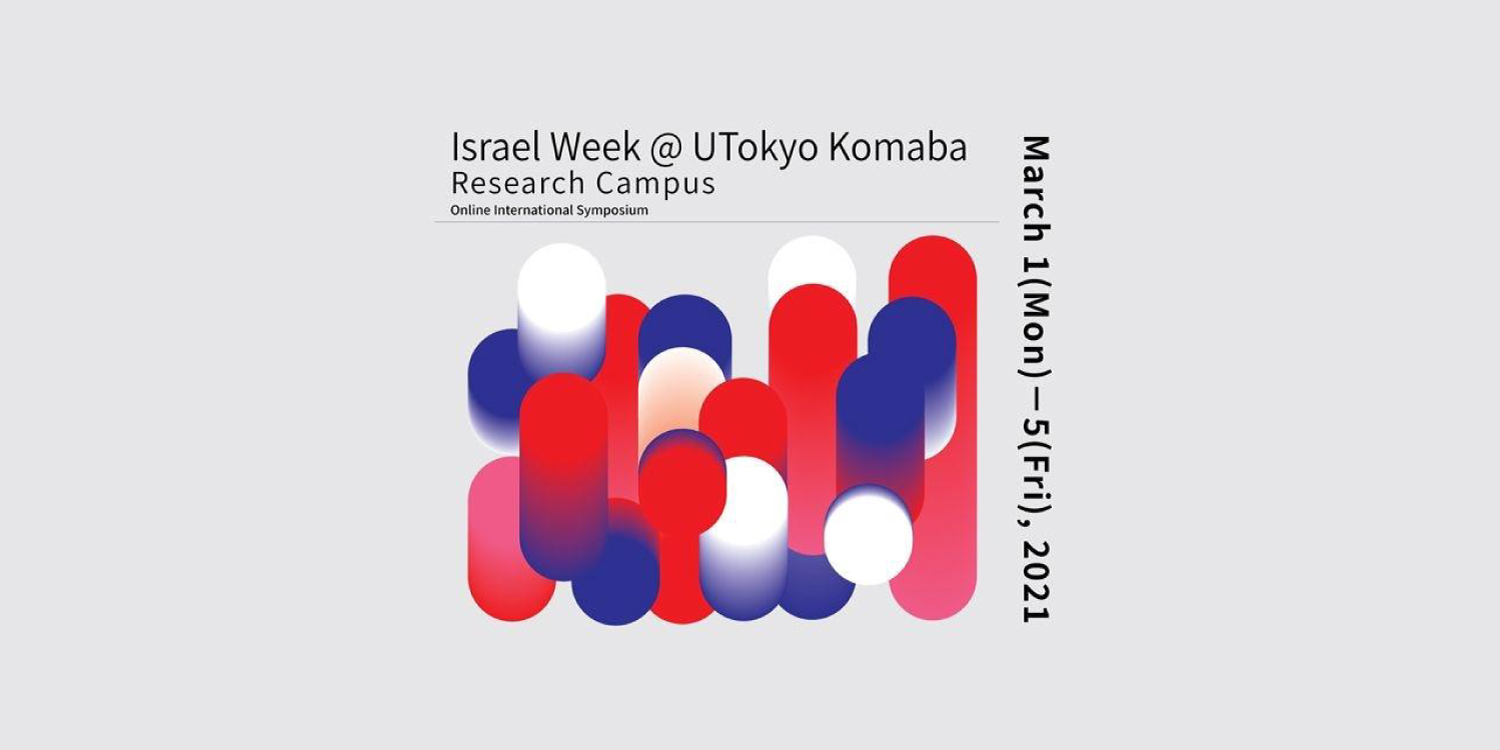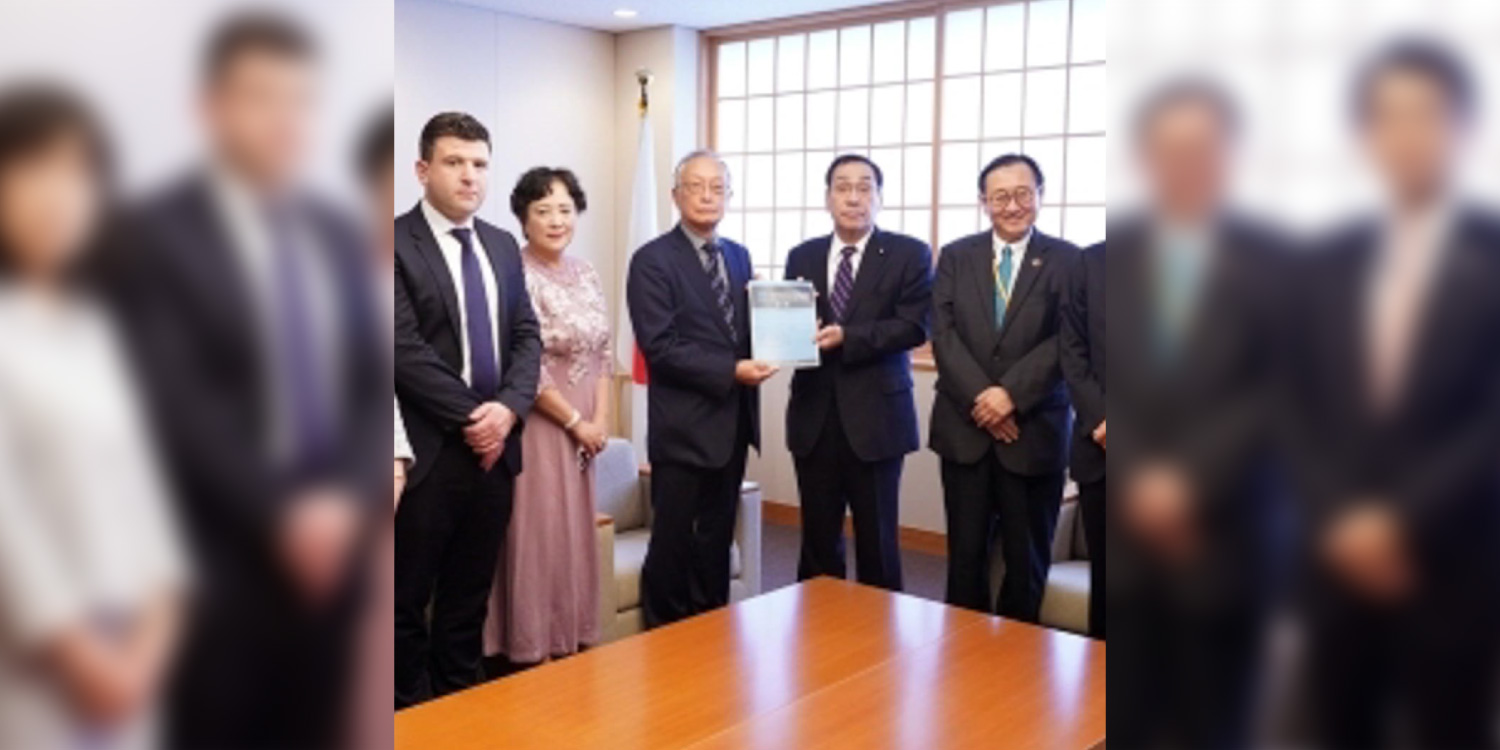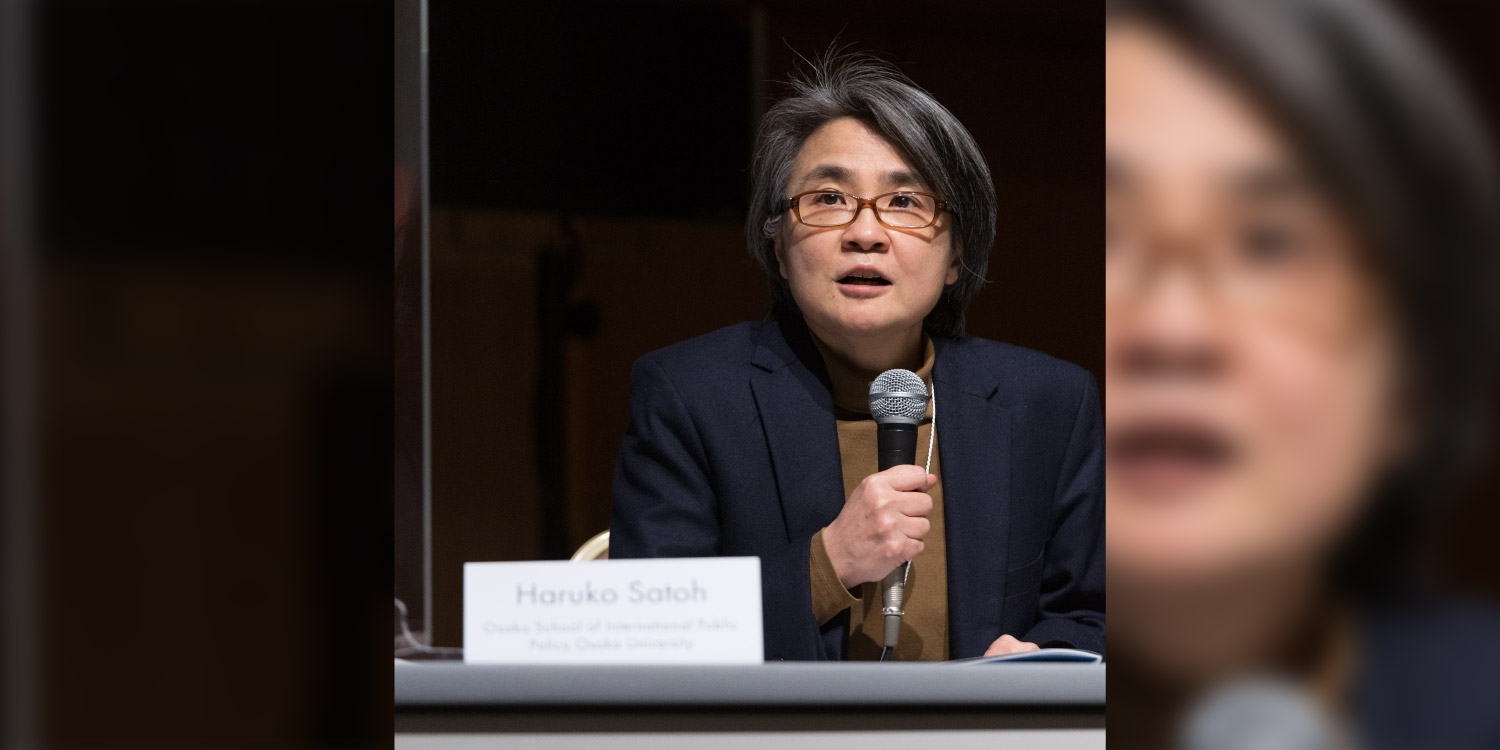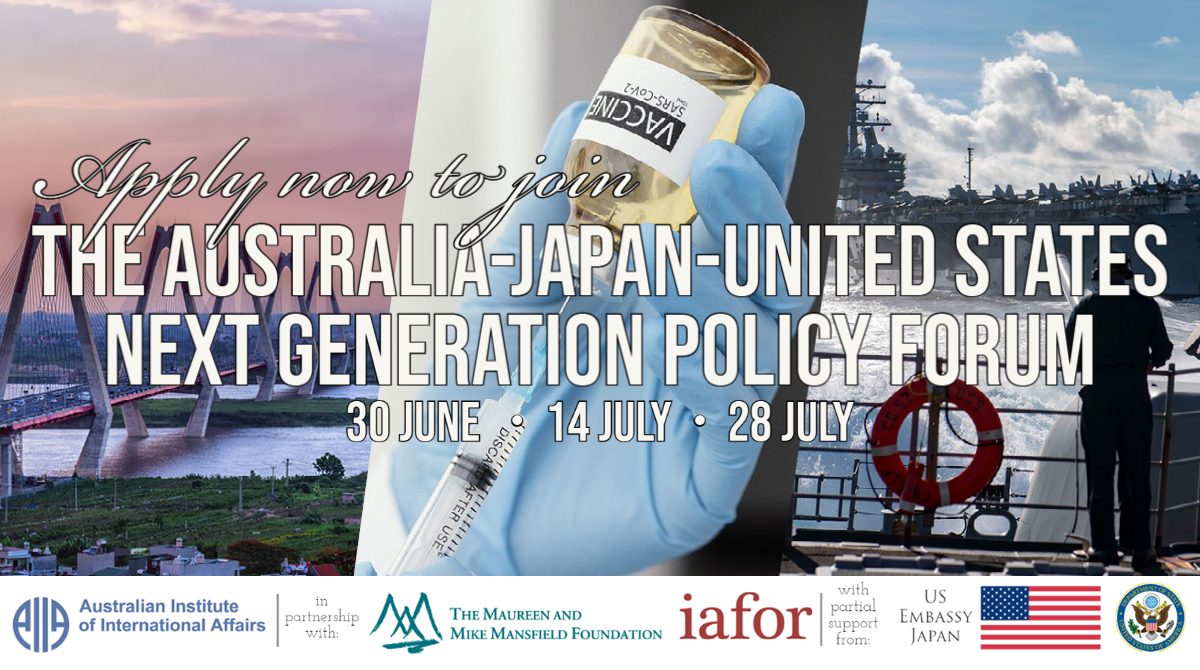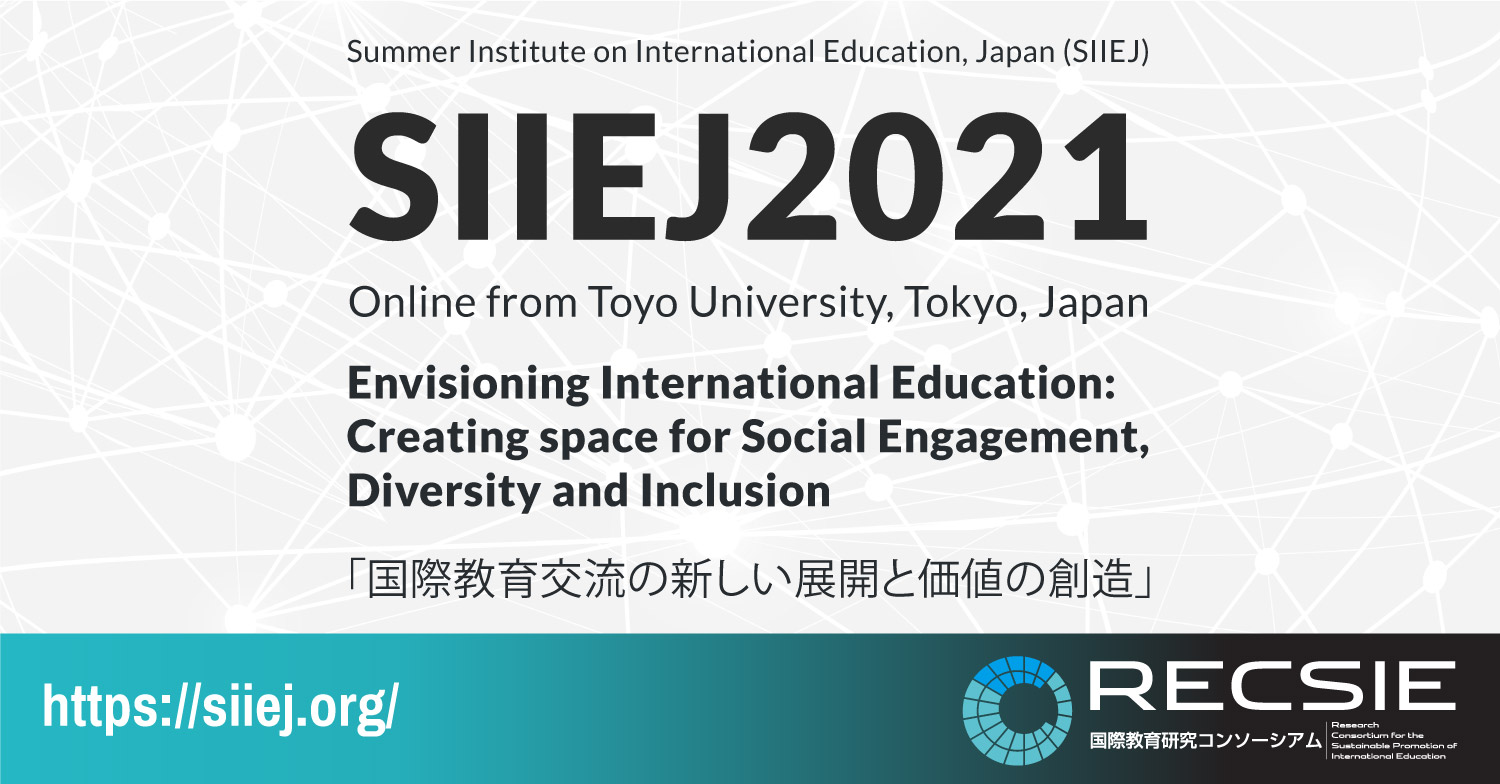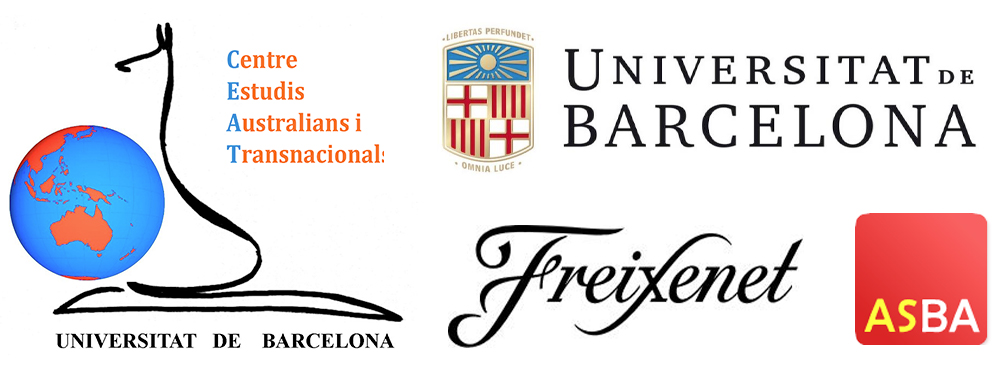Hope for the New Year
At the end of 2020, the very first coronavirus vaccinations were given in the UK, marking the beginning of a worldwide programme of mass vaccinations throughout 2021 addressing the coronavirus pandemic. The various vaccines were developed at great speed and are a testament to the collaboration of many different scientists and policy makers across the world. Human ingenuity, combined with science and learning, has proven it can address the most daunting of challenges.
In the Chairman’s New Year Message, Dr Haldane wrote of the things that had come to be “taken for granted, such as cheap, easy and reliable travel between countries, has become questioned as different nations have responded to the global health crisis in different ways, each impacting local societies, economies, communities, and many individual lives. The pandemic also starkly frames global inequalities.” He continued: “[f]or the academic community, perhaps the most important thing that this crisis will have taught us is that the freedoms that we hold so close, such as those of expression and movement in a globalised world, bring to the fore questions of transparency and governance on an international level. This serves to remind us that questions of human security and public policy, as they relate to such issues as health, climate change, pollution, and individual rights and responsibilities, do not happen in sovereign vacuums, but instead impact other nation-states. If one country is not as transparent as it otherwise might be, then the repercussions are not only domestic, but frequently felt across borders. In a globalised world, it follows that our problems are increasingly global, entangled, and enmeshed. [...] Never has it been more important to encourage concerted cooperation at all levels between countries in order to seek solutions to the world’s most pressing issues. As one such platform, and as we begin to regroup and realign, the coronavirus will likely continue to influence our personal and professional lives.”
“Resilience”
The Executive Committee of the International Academic Advisory Board chose Resilience, the ability to resist being affected, or to recover readily from setback and adversity, as the 2021-2022 overarching theme, reflecting the enormous turbulence and upheaval affecting the world. Nobody has been left untouched by the impact of the global pandemic, and great change has been forced upon us all.
The Board issued a statement accompanying the theme. “COVID-19 has underlined the extent to which we suffer together as one, but also how the experience of a global pandemic has been very different and unequal. This has had a woeful impact on the already marginalised and dispossessed, further evidencing that countries are not equal in their ability to provide for and protect their people. The pandemic has also created questionable narratives and false dichotomies in approaches to finding solutions to the myriad problems that COVID-19 has either caused or exacerbated.
Humans can be by turn extraordinarily delicate, and remarkably resilient and we are now living through and witnessing an extraordinary period of history. However, as with any period of great change, there is a window of opportunity that follows where one has the chance to enact and bring about change for the better. The pandemic has also allowed many of us the space to rethink our relationship with both ourselves and those immediately around us, but also with the wider world. This is a crisis both global and local, both shared and individual.
That time to rethink and reimagine is now as we attempt to regroup and rebuild. We need to build back, but do so in a way that is better, stronger and fairer. Forged by adversity, we have the opportunity to follow divergent paths towards a future that we help create.”
IAFOR Sponsors ASEAN Career Fair with Japan 2021 Online Pre-event Symposium
IAFOR hosted an online Pre-event Symposium at the 9th ASEAN Career Fair with Japan, in collaboration with Singapore Management University (SMU), the IAFOR Research Centre at the Osaka School of International Public Policy, and Osaka University. Following welcoming addresses from Dr Joseph Haldane, Chairman and CEO of IAFOR, and Henry Yeo, Head of Postgraduate Career Services at SMU, Professor Haruko Satoh, Research Director of the IAFOR Research Centre and founder of the ASEAN Career Fair then gave an overview of its history and meaning.
The symposium was honoured to welcome His Excellency Masafumi Ishii, the recently-retired Japanese Ambassador to Indonesia as the first keynote speaker. Ambassador Ishii spoke of the great synergistic relationship between Japan and Southeast Asian countries that was destined to continue to strengthen in future years. In a keynote presentation, titled "Work Together & Advance Together!”, he drew on his recent experience in Indonesia and underlined that while Southeast Asia may have needed Japan more than Japan needed them in the past, in the future that role would be reversed. There then followed presentations by Frank Foley of Next Big Thing Japan KK, and Professor Philip Sugai of Doshisha Business School. They expanded on many of the themes raised by Ambassador Ishii and Professor Satoh, to include perspectives from both business and academia.
This free event was sponsored by The International Academic Forum (IAFOR).
IAFOR Collaborates with the University of Tokyo’s Israel Week Event Series
IAFOR worked with the University of Tokyo on a series of online seminars and lectures on the recent trends and developments in Israel and its impact on Japan-Israel relations as a part of Israel Week @UTokyo Komaba Research Campus. The events in this framework covered a broad range of topics, including the recent normalisation of relations between Israel and Arab countries, STEM education, Science & Design, emergency preparedness and digital health innovation ecosystems, security risks of digital transformation, and the comparative study of the Abrahamic religions. It aims to provide an international forum for the exchange of ideas and inspiration from researchers and experts across different fields, and to seek opportunities for collaboration among the participants from academia, NGOs, industry, and the public sector.
Israel Week @UTokyo Komaba Research Campus was organised by ROLES (RCAST Open Laboratory for Emergence Strategies) in cooperation with IIS (the Institute for Industrial Science (IIS) of the University of Tokyo, and also supported by the Embassy of Israel in Japan.
Dates: Monday, March 1 to Friday, March 5, 2021
Infectious Diseases on Cruise Ships Symposium: Major International Study Reports on Lessons from the Diamond Princess and Other Cruise Ships
The IAFOR Symposium on Preventing and Overcoming Infectious Disease Outbreaks on Cruise Ships: International Challenges & Responses was an event organised by The International Academic Forum (IAFOR) with the support of the Government of Japan through the Ministry of Foreign Affairs (MOFA) on March 10-11, 2021. It was a hybrid (onsite and online) event held at the Toshi Center Hotel, Tokyo, and presented the findings of an international and interdisciplinary research project on infectious diseases on cruise ships commissioned by MOFA, and coordinated through IAFOR and the IAFOR Research Centre at the Osaka School of International Public Policy (OSIPP) at Osaka University. It was simultaneously interpreted in English/Japanese.
The project was commissioned in the wake of the impact of COVID-19 on cruise ships throughout the world, and most notably the Diamond Princess, which highlighted many international legal, diplomatic and public health issues. The research brought together Japanese and international experts working in the fields of international and maritime law, international relations, public health and the built environment, and involved the cooperation of University College London, the East-West Center (Washington D.C.), Clingendael - the Netherlands Institute of International Relations, and the National University of Singapore.
Day 1: Overview
The international symposium began with a welcome address by Dr Joseph Haldane, Chairman and CEO of IAFOR, who thanked both the Japanese Experts Committee, and the many international collaborators who had contributed to the project, underlining the international and interdisciplinary nature of the study, and how essential these different perspectives were in addressing a topic of such importance. His Excellency Ambassador Masahiro Takasugi, Deputy Director-General for Global Issues, at the Ministry of Foreign Affairs of Japan, then added his words of welcome, highlighting the importance of this study and situated it in a global and historical context. Dr Shu Uchida, of Osaka University, then introduced His Excellency Toshiya Hoshino, Former Japanese Ambassador to the United Nations, Professor at the Osaka School of International Public Policy (OSIPP), and Director of the OSIPP-IAFOR Research Centre, who moderated the sessions with the Japanese experts. The symposium, which would have been a one-day event, was spread over two days (afternoon of the 10th and morning of the 11th) to accommodate the time zones of the participants from Europe and the United States. Notable among the online audience of around 150 were the presence of many Japanese local port authorities, as well as experts from think tanks and research institutions in Japan as well as Southeast Asia.
Parliamentary Vice-Minister for Foreign Affairs Nakanishi Satoshi receives IAFOR Report on Infectious Disease Outbreak on Cruise Ships
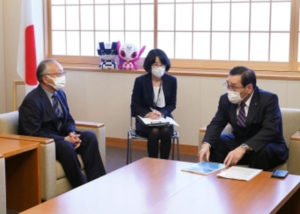
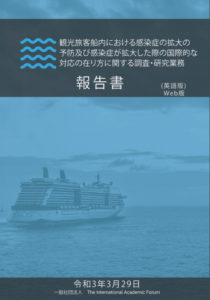
Following unprecedented cases of the spread of new infectious diseases on cruise ships last year, this project was commissioned to IAFOR by the Ministry of Foreign Affairs of Japan in order to develop an international framework aiming at preventing and responding effectively to similar cases in the future. The submitted final report was produced based on interdisciplinary discussions of experts in various areas.
IAFOR Chairman and CEO, Dr Joseph Haldane, said that he was very proud of the results of the research project and thanked the Vice-Minister and representatives of the experts committee for their hard work: “This is a major piece of interdisciplinary research, which we hope will have a major impact on international public policy as we come together to fight the global pandemic, and look towards cultivating resilience going forward.” He also said that this project was “a great testament to the international research network that IAFOR has built over the past decade” and to the “great work of the IAFOR Research Centre, and its Research Director, Haruko Satoh” through which the project was coordinated. He also thanked “the institutions and the many different collaborators who had worked on this project globally”, and who are listed below.
Pictured from left-right are Professor Mariko Kawano, Waseda University; Dr Joseph Haldane, Chairman and CEO of IAFOR; Professor Atsuko Kanehara, Sophia University; Professor Emeritus Yoshiho Ikeda, Osaka Prefecture University; Vice-Minister Satoshi Nakanishi; Professor Toshiya Hoshino, Former Japanese Ambassador to the United Nations and Executive Director of the OSIPP-IAFOR Research Centre at Osaka University, and; Ambassador Keichi Ono, Assistant Minister and Director General of Global Issues.
The full report, “Toward Safe and Healthy Trans-border Cruises: International Challenges for Building Resilient and Trusted Ships and Ports” is available for download in English and Japanese.
Note: Parts of this report are drawn from a press release of the Japanese Ministry of Foreign Affairs.
Co-Director of the IAFOR Research Speaks at the Times Higher Education (THE) Asia Universities Summit 2021
Professor Haruko Satoh, Co-Director of the IAFOR Research Centre spoke at the Times Higher Education Asia Universities Summit 2021 on a panel titled: Can an international outlook in higher education help to reduce geopolitical tensions? What are the limits to closer global ties? The session moderated by Joyce Lau, Editor (Asia) of the THE, and also with Safwan Masri, Executive Vice-president of Global Centers and Global Development at Columbia University.
IAFOR Collaborates with 2021 Australia-Japan-United States Next Generation Policy Forum
The 2021 Australia-US-Japan Next Generation Policy Forum is an online event that brought together early career professionals who demonstrate an interest and expertise in the Indo-Pacific region, providing them with opportunities to connect with experts and deepen their knowledge on the key issues facing the Indo-Pacific region.
The forum consisted of six panel discussions held over the course of three days in June and July 2021.
IAFOR Partners with RECSIE on the Summer Institute on International Education, Japan (SIIEJ2021)
The Summer Institute on International Education, Japan is an annual event organised by the Research Consortium for the Sustainable Promotion of International Education (RECSIE), in association with the Institute for Innovative Global Education at Kansai University and Toyo University, and supported by the Ministry of Education, Culture, Sports, Science and Technology (MEXT), and The International Academic Forum (IAFOR), among others.
Conference Committee Chair, Professor Shingo Ashizawa of Toyo University, wrote: “With increasing workloads related to university internationalisation, global human resource development, and international student recruitment, it has been pointed out that there are delays in addressing international admissions, analysis of the results of study abroad and the internationalisation of campus environments and curricula. In addition, the COVID-19 pandemic has brought international educational exchange to a major turning point. International educational programs will become more creative and innovative than ever before [...].”
Held in 2021 online, the 4th annual conference offered a variety of training sessions and seminars for faculty and administrative staff whose work underpins university internationalisation. Over the course of a series of workshops and sessions, participants of SIIEJ2021 exchanged views and gained the most up-to-date knowledge in the field of international education, as well as building networks which span boundaries between individual universities.
“Post-Afghanistan America: Implications for Peace & Security in Asia” – An IAFOR Research Centre Roundtable
The dust from the shock of US withdrawal from Afghanistan has yet to settle but its ramifications are far-reaching. In Asia, the main theatre of US-China rivalry, questions about America’s role and mode of engagement in the region abound in the wake of Afghanistan. President Biden signalled the end of US involvement in “nation building of others”, but does this mean the “true end of Pax Americana”?
This special roundtable discussed issues that have bearing on Northeast and Southeast Asia’s complex security environment, where both the traditional geopolitical security issues cross paths with the humanitarian-development-peace nexus policies.
“Post-Afghanistan America: Implications for Peace & Security in Asia” was an IAFOR Research Centre Roundtable organised in collaboration with PPSA Mindanao Caucus and in partnership with Mindanao State University, General Santos City, Philippines. It was organised as part of the IRC-OSIPP’s project on “Peace and Human Security in Asia: Toward a Meaningful Japan-Korea Partnership” supported by the Korea Foundation, and as a part of the Osaka University OSIPP Global Governance course.
Announcing The Paris Conference on Education (PCE2022) & The Paris Conference on Arts & Humanities (PCAH2022)
The IAFOR board decided to expand the organisation’s footprint in Europe with the launch of a new conference in Paris.
“Paris has always been a city driven by strident ideas, where discussions and debates are lively, open and frequently heated, overspilling into protests, strikes and even revolution. As such, the French capital is among the world’s most important cultural and intellectual centres, and a city of great history and energy” wrote Dr Haldane, Chairman and CEO of IAFOR, on the conference site. He continued, “As countless scholars have done in difficult times before, we meet in Paris to consider the future and the education of future generations with apprehension, but also with great hope. We come together as educators and colleagues, as researchers and friends, and with the goal of breathing new life into the global and international academic community that is IAFOR.”
“Pandemic as Polemic”, in Collaboration with CEAT, University of Barcelona
IAFOR, in collaboration with Centre Estudis Australians i Transnacionales (CEAT) at the University of Barcelona hosted a special seminar titled “Pandemic as Polemic” in November, 2022. The seminar was sponsored by the University of Barcelona, Freixenet and the Australia Spain Business Association (ASBA), and featured a wide range of academics speaking on the concept of COVID-19 as an interface of conflict, but also as a source of renovation and construction.
Conference Convenor, Professor Emerita Sue Ballyn of the University of Barcelona wrote: “The COVID-19 pandemic has been a great challenge for everybody, individually and socially, and has raised many questions about lifestyle, environment, social and economic inequality, health policies, science and especially governance and politics. COVID-19, its development, impact and effects form the basis of most current debates in our media and politics, and the illness has therefore become a rich interface of conflict that exacerbates contemporary inequalities and creates new ones. Yet, polemic can also be the source of renovation and construction, and as such, COVID-19 needs and deserves to be discussed from a multidisciplinary global perspective.”
IAFOR Research Centre Co-hosts the KISA 13th Annual Convention & APISA 15th Congress
On November 27-28, the IAFOR Research Centre at the Osaka School of International Public Policy (OSIPP), Osaka University collaborated on the joint online KISA 13th Annual Convention and APISA 15th Annual Congress in collaboration with main host, The Graduate School of International Studies and the Institute for International and Area Studies at Ewha Womans University, South Korea.
The keynote speakers were former Japanese foreign minister Mr Kono Taro, former Korean foreign minister Dr Kang Kyun-wha, and Dr Lam Peng Er of the National University of Singapore’s East Asian Institute.

